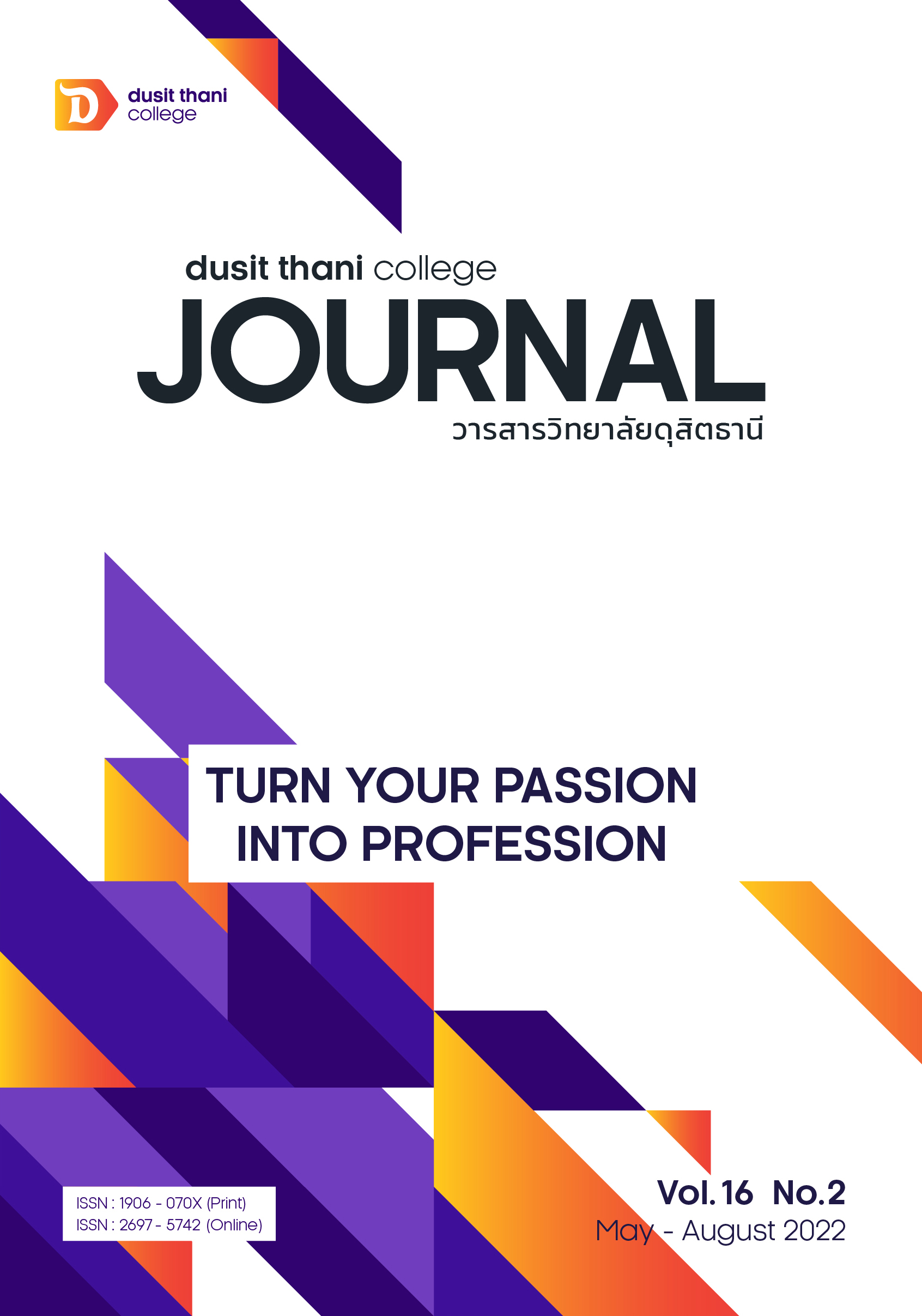Knowledge Management Innovations of Small Hotels Management to Stimulate the Local Tourism Economy
Main Article Content
Abstract
This academic article the objective to knowledge management innovations of small hotels management to stimulate the local tourism economy. This is a qualitative research using in-depth interviews with experts. Research users and stakeholders Summarize data with content analysis. Found that 1) newness in small hotel management is something new that has been developed. This may look like a product, service or process. which can be improved from the original or developed a new one 2) the economic benefit of managing a small hotel is that it generates additional value through the development of new things. Create value for the business to create value that is superior to competitors effectively. The higher the competitiveness of the business or the value that customers receive from the consumption of goods and services available in the hotel business. 3) the use of knowledge and creativity in the management of small hotels is the result of using knowledge and creativity as the basis for new developments. not due to plagiarism Iteration in management, cost, marketing, customer loyalty, or the use of creativity in service sharing between service providers and clients. This results in the novelty of niche or individual services.
Article Details

This work is licensed under a Creative Commons Attribution-NonCommercial-NoDerivatives 4.0 International License.
Article Screening Policy
- All research and academic articles to be published must be considered and screened by three peer reviews in the relevant field / article.
- All articles, texts, illustrations and tables published in the journal are the personal opinions of the authors. Editors don't always have to agree. And no responsibility whatsoever is the sole responsibility of the author.
- The articles to be published must never be published. Where did you first publish? And not in the consideration of other journals If the audit found that there has been a duplicate publication It is the sole responsibility of the author.
- Any article that the reader sees as being plagiarized or impersonated without reference. Or mislead the work of the author Please let the journal editor know it will be your greatest blessing.
References
Bacha, N. N. (2000). Developing Learners’ Academic Writing Skills in Higher Education: A Study for Educational Reform. Language and Education 16(3). 161-177.
Chesbrough, H., Vanhaverbeke, W., & West, J. (2006). Open Innovation: Researching a New Paradigm. Oxford: Oxford University Press.
Institute of Technological Development for Industry. (2018). Handbook: Hotel Business Management. Bangkok: Department of Internal Trade, Ministry of Commerce.
Lin, H.F., & Lee, G.G. (2004). Perceptions of Senior Managers toward Knowledge-Sharing Behavior. Management Decision, 42(1), 108-105.
National Innovation Agency. (2019). Innovation Management for Executives. Bangkok: Ministry of Higher Education, Science, Research and Innovation.
Nonaka,kujiro and Takeuchi, Hirotaka. (2000). Classic Work: Theory of Organizational Knowledge Creation. In Morey, D. , Maybury, M.T. and Thuraisingham, B.M. Knowledge Management: Classic and Contemporary Work. Mass.: The MIT Press.
Office of Nation Education Standards and Quality Assessment. (2012). Report of external quality assessment of basic education institutions. Bangkok: Office of Nation Education Standards and Quality Assessment.
Panich, V. 2012. Learning for students in the 21st century. Bangkok: Sodsri - Saritwong Foundation.
Pornprathanwech, T. (2015). Development of Small Hotels for Promo thing Cultural Tourism: a Case Study of Renovating Shophouse in the Urban District of Ratchaburi Province. Master of Architecture Thesis. Bangkok: Thammasat University.
Rodie, A. R., & Martin, C. L. (2001). Competing in the Service Sector – The Entrepreneurial Challenge. International Journal of Entrepreneurial Behavior & Research, 7(1), 5-21.
Schilling, M. A. (2008). Strategic Management of Technological Innovation. (2nd ed.). New York: McGraw-Hill Education.
Smith, David. (2006). Exploring Innovation. London: McGraw-Hill.
Sosongchan, A. (2011). The Development of a Slide Presentation Module for Moodle. Master of Information Science Thesis. Nakhon Ratchasima: Suranaree University of Technology.
Special Area Development Administration Organization for Sustainable Tourism. (2018). Community-based Tourism, Thai Style, Sustainable Chic.. Retrieved 31 January 2022. From https://tatreviewmagazine.com/article/community-based-tourism/.
Tanongphaeng, W. & Na Thalang, C. (2017). Management Model for Small Hotel in Trad Province. Dusit Thani College Journal, 11(3). 1-17.
Wijan, B. (2010). Building the Learning Organization. Bangkok: Expernet Company Limited.


